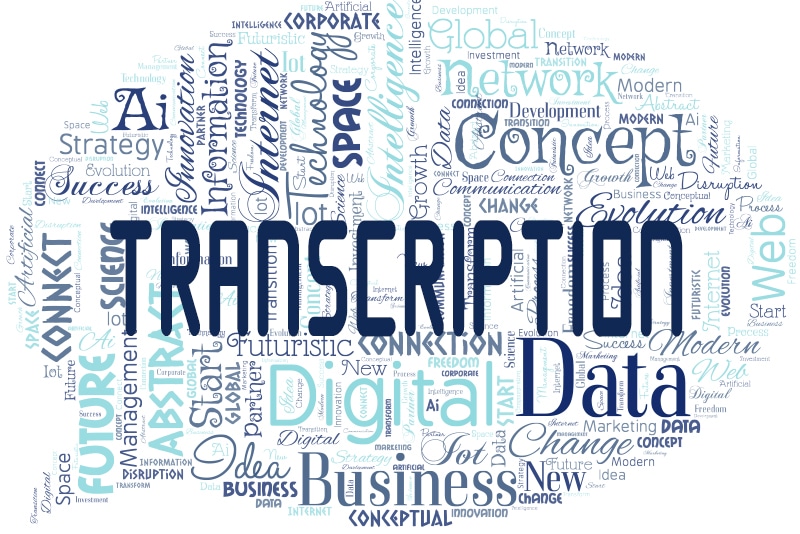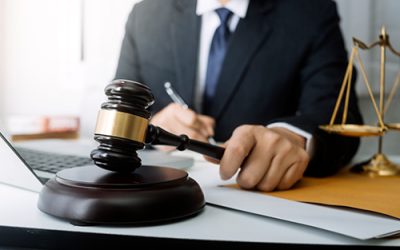
Depositions are an important pretrial discovery tool for litigators, wherein witnesses or parties to the case provide sworn testimony under oath. During a deposition, lawyers learn before the trial what testimony the deposition witness will provide. Litigators constantly strive to improve deposition preparation and taking skills. Deposition transcription services help lawyers to accurately capture vital legally relevant facts and prepare for further legal proceedings. Accurate deposition transcripts that convey the content of video/audio recordings are crucial to present the evidence in court and promote a just, fair trial.
Depositions – An Integral Part of the Discovery Process
The main goals of a deposition are to:
- Find out what the witness knows – asking the right questions and evaluating the witness’s answers allows the lawyer to understand if they are compelling and whether a jury will ultimately consider their testimony to be credible.
- Collect information – depositions are used to collect information about the case – from understanding the witness’s version of the story to identifying documents that can confirm or challenge that version, and to find out other individuals who might have important information and should also be deposed.
- Obtain admissions – lawyers use a line of questioning to obtain an admission from the witness. This usually includes asking leading questions and conducting intelligent and effective cross-examination strategies.
Other purposes of a deposition are to solidify the witness testimony, identify themes and theories and authenticate key documents or exhibits. By learning the strengths and weaknesses of their case, litigators can better evaluate it and advise their client.
Best Practices to Optimize Deposition Transcription
Having an accurate, verbatim recording of witness testimonies and court decisions is invaluable for attorneys for many reasons:
- Obtain a precise record of events and avoid misunderstandings and legal disputes about the use of the transcript as evidence
- Develop a plan of action by developing more questions to ask witnesses
- Understand and review legal decisions made by judges or juries
- Prepare for additional depositions, a trial or further legal proceedings
If the deposition transcript contains errors or omissions, it can be detrimental to the case. Here are 8 best practices to help lawyers conduct effective depositions and optimize the transcription:
- Ensure vocal clarity: Articulation, diction and speech patterns impact recording and deposition transcription. The purpose of the transcript is to provide clear record of a witness’s account of events dealing with the case. Whether the statements were captured by video or audio, the witness should speak clearly, slowly, and focus on expressing things correctly.
- Build rapport: Build rapport with the deponent so that they feel at ease and open up. Take time to explain to the witness that proper articulation and diction is crucial for a clear deposition record, and importantly, to avoid miscommunication. Beginning with simple questions and small talk can make them feel comfortable and build trust.
- Research the law: To take effective depositions and get an accurate record, attorneys need to know what questions to ask. For that, they need to know the law. The litigation team should research the law, construct the theory of the case, and then obtain the deposition testimony and other evidence to support the theory (www.americanbar.org).
- Be prepared and decide what questions to ask: Being well prepared is crucial. In addition to reviewing the relevant documents and evidence, prepare an outline of the questions, and try to anticipate potential responses. Consider the sequence of your questions. Also, ask straightforward, open-ended questions and avoid filler words like ‘um’, ‘uh’. etc, as their use can make transcription difficult.
- Be attentive: A good outline is important but this doesn’t mean sticking to a script. Make sure you listen to the answers so that you can modify your line of questioning when needed. If the deponent’s answer is not clear, ask clarifying follow-up questions to gather information. “The best lawyering is often done in those unexpected moments. Listen to the answer and consider whether there are details behind it that may possibly have an impact on the case. If so, explore those details”, recommends an ABA article.
- Avoid cross-talk: Another important aspect for a clear and concise record is avoiding cross-talk. When two or more people are talking at the same time, making it difficult to understand who is saying what. This can make transcription a challenge.
- Capture important nonverbal communication: Nonverbal communication is an element of human nature. Video deposition can capture important nonverbal cues that may be important to the case. Crying, fear, nervousness, grief, etc., are common emotions that witnesses may show in a damaging case, and are important to for the jury to see. These emotions can be noted and conveyed in the transcript. As a lawyer, you should be aware of your tone and maintain a calm and professional demeanor.
- Pay attention to the tech: Focus on optimizing audio quality. This is important not only from a technical point of view but also for clarity during the deposition. Whether it’s being conducted remotely or not, many factors come into play when it comes to strong audio capture. Consider room acoustics, the number of speakers, including those dialing in remotely to determine the number of microphones required for smooth flow and clarity during the deposition process. If you are using speech recognition technology, make sure to check the transcript carefully.
While paying attention to these matters is crucial to conduct smooth and successful deposition, make sure the transcription is done by a professional audio transcription service provider. Experts are knowledgeable about the requirements of deposition transcription and can provide accurate transcripts in quick turnaround time at cost-effective rates. If the document was generated by an automatic speech-to-text recognition (ASR) tool, having human transcriptionists review it is important to ensure accuracy and completeness.
Leave your legal transcription work to us and focus on your case.
Call us @ (800) 670-2809 to discuss your requirements!



